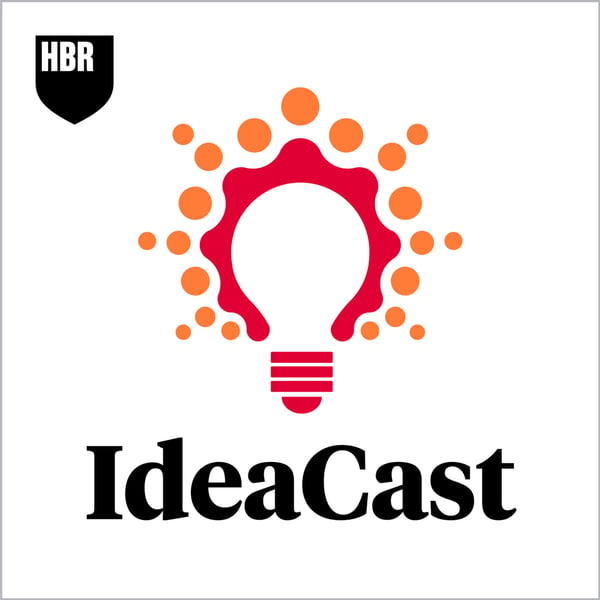Have You Built Up Your Conflict Intelligence?
HBR IdeaCast
Harvard Business Review
4.4 • 1.9K Ratings
🗓️ 15 July 2025
⏱️ 32 minutes
🧾️ Download transcript
Summary
Transcript
Click on a timestamp to play from that location
| 0:00.0 | I'm Adi Ignatius. |
| 0:11.8 | I'm Alison Beard, and this is the HBR IdeaCast. |
| 0:25.6 | All right, Alison, today we're going to focus on conflict in the workplace. |
| 0:28.5 | Now, some of this conflict is driven by external factors. |
| 0:32.9 | We live in very divisive partisan times, and that can spill into the office. And part of this is driven by internal conflict. |
| 0:37.2 | The question is, how do leaders respond? |
| 0:39.6 | When does conflict rise to the level where leaders need to get involved? |
| 0:43.7 | And how do they resolve them in ways that keep the company moving and keep the culture intact? |
| 0:49.9 | This seems like a really relevant topic right now because, you know, there are the typical internal disagreements that might happen between managers fighting for resources or C-suite execs debating strategy, which happens all too often when there is economic turbulence and uncertainty. |
| 1:07.5 | But then, as you say, there's also these sort of outside forces that are seeping into |
| 1:12.9 | the daily running of business. A recent study from the Society for Human Resource Management found |
| 1:18.4 | that a full 76% of workers had witnessed acts of insinvility in the last month. Yeah, and you can't |
| 1:24.9 | ignore it. This kind of conflict can damage a culture. |
| 1:27.9 | Can make workers feel that they don't want to be in this workplace. So obviously, there's |
| 1:33.5 | the human cost of all this, but this kind of conflict, this kind of contentiousness, can also |
| 1:38.0 | cost a company and workers in terms of both productivity and money. There are ways to handle these conflicts. You're not born |
| 1:47.6 | with the skill. You can learn the skill. And I think we're paying more attention to leaders who are |
| 1:53.4 | able to handle conflicts effectively. I imagine that emotional intelligence is a big part of being |
| 1:59.0 | able to manage conflict, diffuse conflict, but it's not the only |
| 2:03.2 | piece? No, I mean, so there's something called conflict intelligence. And my guest today is |
| 2:09.2 | Peter Coleman, a professor at Columbia University's Teachers College. He also directs there a center on |
| 2:14.9 | cooperation and conflict resolution. He wrote a recent article for |
... |
Please login to see the full transcript.
Disclaimer: The podcast and artwork embedded on this page are from Harvard Business Review, and are the property of its owner and not affiliated with or endorsed by Tapesearch.
Generated transcripts are the property of Harvard Business Review and are distributed freely under the Fair Use doctrine. Transcripts generated by Tapesearch are not guaranteed to be accurate.
Copyright © Tapesearch 2025.

